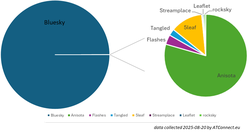Relevant Overviews
- Bluesky and the ATmosphere
- Communication Strategy
- Content Strategy
- Fediverse
- Online Strategy
- Online Community Management
- Social Media Strategy
- Content Creation & Marketing
- Digital Transformation
- Change & Project Management
- Thinking tools
- Blockchain, Crypto, NFTs etc
- Personal Productivity
- Innovation Strategy
- Psychology
- Social Web
- Media
- Politics
- Communications Strategy
- Science&Technology
- Business
- Large language models
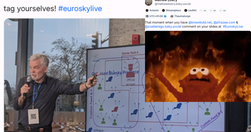
"I was in Berlin last November to present at a satellite event around the Summit on European Digital Sovereignty. The two posts which resulted are below, followed by the latest from the growing ATProto4Science movement."
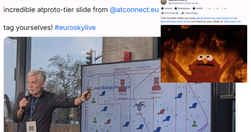
"Large organisations need dedicated tools and processes to manage their Bluesky presence and get the most out of ATproto".A repost onto Medium of version 4 of a wiki page I've been developing for most of the year.
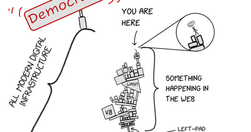
"What happens when you put politicians, media businesses and protocol engineers in the same room to discuss European sovereignty?" - my post following Eurosky.Live in Berlin, November 2025.
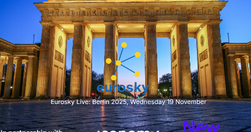
Newsletter as I head off to Berlin to talk about digital sovereignty, social media and ATprotocol.

"A journalist gets blocked by Bluesky, but her Bluesky posts can still be seen via Blacksky. This apparent contradiction goes to the heart of resilient social media, where businesses must support their users to stay in business"
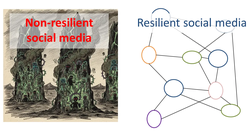
What does sovereignty look like in the social media space? Some thoughts before heading to Berlin to help launch eurosky.social at a side event around the Franco-German Summit on European Digital Sovereignty.
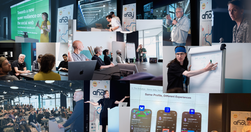
In late April I was in Hamburg for Ahoy! 2025, the first European conference dedicated to the ATmosphere — the information ecosystem built atop of ATproto, the protocol underpinning Bluesky.
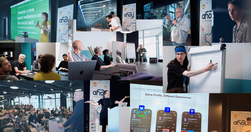
In late April I was in Hamburg for Ahoy! 2025, the first European conference dedicated to the ATmosphere - the information ecosystem built atop of ATproto, the protocol underpinning Bluesky. I proposed a couple of ideas for the unconference sessions, and came away with content for at least 5 posts, none of which I've found time to write.
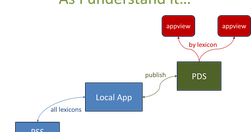
Some thoughts on how Groundmist supports the ideas I'm developing for decentralised collective intelligence, written in preparation for an online workshop with the Groundmist developer and other interested people.
"Let's build a tool to help large organisations coordinate their Bluesky footprint, helping them get the most out of the platform" - One of my suggested conversation topics at the Ahoy conference, April, 2025.
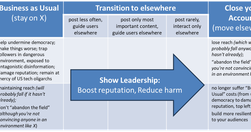
Last month I published a couple of posts on X and Bluesky. They make a nice pair, so I'm including both, below, and taking this opportunity to ask for your perspective. I'd really value getting you and your organisation's views on both platforms in 2025, and I'd be happy to answer any questions in return.
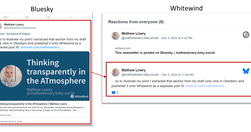
If, like many, you think Bluesky is "Twitter, but with less Nazis", this post is for you.
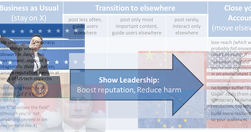
I know: you've spent probably ~15 years diligently developing your following there. At the beginning Twitter was fun, particularly when you didn't have so many followers that you couldn't interact with at least some of them. But now, you may have a problem.
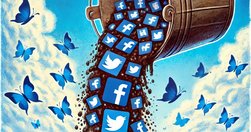
I've been cleaning out a few rotten systems recently.
"This post was extracted from the draft of my December newsletter and published on Whitewind, demonstrating how a new array of apps on the ATmosphere - the ecosystem built with ATProto, Bluesky's protocol - could potentially usher in seamless decentralised collective intelligence."
"I usually circulate my newsletter to its subscribers via Mailchimp before reposting it to Medium for my subscribers there. However, for this edition I posted this content from Obsidian, my notemaking tool, direct to Bluesky's Atmosphere. It's early days, but I think this augurs well for decentralised collective intelligence."
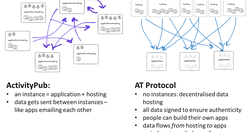
My mid November 2024 newsletter summarises how a deep dive into Bluesky has changed how I view #AI4Communities, and summarises some of the most influential things I've read recently.
My late October 2024 newsletter introduces my ongoing work exploring #AI4Communities, and provides some of the resources going into the next version.
"As AI-generated content blurs the line between human and machine online, “model collapse” might help us find new value in well-managed human communities."
I hope you had a good summer. I stayed and worked from home, and got a lot done thanks to the mercifully fewer meetings. I also read a lot of good stuff, and published one piece. Here's a selection.

"I had just finished recording the final video of my personal productivity mini-course when I turned on the camera and ad-libbed from the heart. I was unprepared for what came out."
"It's been over a year since I put this newsletter on hold to focus on integrating AI into MyHub.ai", but I've decided to bring it back...

Copy paste this into your nearest Word document or enterprise chat window, replace <> with your organisation's name and <> with whatever tool it uses to manage its knowledge, and you're good to go!
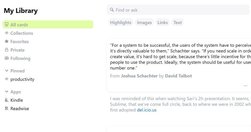
I've been kicking the tyres of Sublime, a new personal and social curation app, and pondering its approach to integrating AI.
One of the snippets from a ZNLive interview I did in December 2023: "emerging social media platforms like Mastodon and Bluesky face a humorous yet real challenge - they're like "Twitter, but without your friends."With the European launch of Threads, the question arises: Can it offer a unique appeal to draw users? Will [they]... redefine social net…

Exactly one year after publishing Am I on the right Mastodon instance?, I discover that I wasn't. At least I got a good image out of ChatGPT for the occasion, for a change.
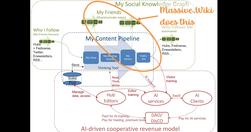
A quick video
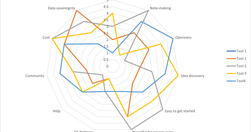
The last of my 1/1/2023 bundle of 5 posts introduces a first pilot project into exploring and demonstrating decentralised solutions to collective intelligence.The knowledge domain is Tools for Thought (TfTs), so the end result will be a map of the TfT landscape, which "is forbidding to newcomers, with software still aimed at early adopters, and th…
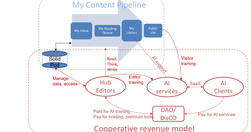
The 3rd part of my 1/1/2023 bundle of 5 posts looks at how AI could turbocharge collective intelligence "and finance the resulting ecosystem, providing an alternative to Big Tech AI monopolies".
Relevant Overviews
- Bluesky and the ATmosphere
- Communication Strategy
- Content Strategy
- Fediverse
- Online Strategy
- Online Community Management
- Social Media Strategy
- Content Creation & Marketing
- Digital Transformation
- Change & Project Management
- Thinking tools
- Blockchain, Crypto, NFTs etc
- Personal Productivity
- Innovation Strategy
- Psychology
- Social Web
- Media
- Politics
- Communications Strategy
- Science&Technology
- Business
- Large language models
